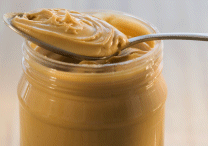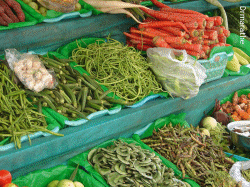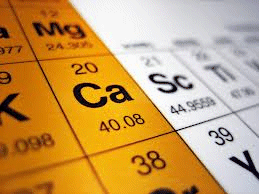 HOME > ARCHIVES & ARTICLES ON ALTERNATIVE HEALERS > COMPANY BLOG
HOME > ARCHIVES & ARTICLES ON ALTERNATIVE HEALERS > COMPANY BLOG

Dear Readers,
 Welcome to August's edition of Vibrant Living and to a series of health tips gathered up over the months for your benefit. We have especially enjoyed introducing Elina's Herbal Skin Care over the last month and have been thrilled with the interest and enthusiasm our readers have had over discovering the benefits of bio-energized transdermal skin care.
Welcome to August's edition of Vibrant Living and to a series of health tips gathered up over the months for your benefit. We have especially enjoyed introducing Elina's Herbal Skin Care over the last month and have been thrilled with the interest and enthusiasm our readers have had over discovering the benefits of bio-energized transdermal skin care.
We will be hosting a booth at the Raw Foods Festival in Hillsboro, Oregon August 19th thru the 22nd, so if you are in the area, come for a visit. We send wishes for a continued joyous summer with family and friends. May each of you find time to visit nature and enjoy the bounty and variety of fresh, organic produce in abundance this time of year.
In vibrant health,


Shay Arave, President
Pure Energy Rx


The Skin You're In
Although those of us who are actively working on self-improvement are constantly asking such questions as, "What are the underlying issues in my life?" or "What is the deeper meaning to this relationship," or "What's happening to this person beyond skin deep?"--it's sometimes easy to miss the forest for the trees, and take our physical skin for granted, as if it was more of a veil to be pierced rather than the amazing human organ that it is. [READ MORE]

Welcome Our Newest Product!
 We're very excited about our newest formulation from Elina Skin Care. It's our Healing Sea Buckthorn Lotion. This bio-energized formula not only heals skin damage, it also helps relieve topical and muscular pain. We've been using this lotion for the past couple of weeks, and, wow, it's been great! Sea Buckthorn is an ancient European herbal discovery, used for generations to treat a wide range of ills, only recently making its debut in America, and it's catching on for a very good reason.
We're very excited about our newest formulation from Elina Skin Care. It's our Healing Sea Buckthorn Lotion. This bio-energized formula not only heals skin damage, it also helps relieve topical and muscular pain. We've been using this lotion for the past couple of weeks, and, wow, it's been great! Sea Buckthorn is an ancient European herbal discovery, used for generations to treat a wide range of ills, only recently making its debut in America, and it's catching on for a very good reason.

F.Y.I. - Interesting Health News Tidbits
Peanut & Nut Consumption Reduces Risk of Gallstones
 Peanut consumption reduces risk of gallstones--more specifically, increased consumption of peanuts and/or other nuts reduces the risk of cholecystectomy (the removal of the gall bladder due to gallstones) in women. A new study by researchers from Harvard Medical School found that woman who ate five ounces or more of peanuts, other nuts, or peanut butter per week were 25% less likely to require a cholecystectomy as compared to woman who ate less than one ounce of nuts per month. The researchers did not speculate as to the reason for the correlation.
Peanut consumption reduces risk of gallstones--more specifically, increased consumption of peanuts and/or other nuts reduces the risk of cholecystectomy (the removal of the gall bladder due to gallstones) in women. A new study by researchers from Harvard Medical School found that woman who ate five ounces or more of peanuts, other nuts, or peanut butter per week were 25% less likely to require a cholecystectomy as compared to woman who ate less than one ounce of nuts per month. The researchers did not speculate as to the reason for the correlation.
Serum Selenium Related to Homocysteine Levels
Over the years low selenium levels have been associated with several maladies in humans. More recently an animal study concluded that there was a direct association between selenium (a trace element) and elevated blood homocysteine levels, a known risk factor in heart disease. Spanish researchers set out to determine if the association existed in humans. The researchers estimated protein intake and determined the serum selenium levels and serum homocysteine concentrations. From the analysis, the researchers determined that the subjects in the high level of serum selenium levels had 63% less risk of developing elevated serum homocysteine concentrations. Selenium is a powerful anti-oxidant, and a great addition to a supplement regimen. It may be in your multivitamin already, but if it is not, you may want to consider adding a supplement to your regimen. [SOURCE]
 Plant Protein and Healthy Gallbladders
Plant Protein and Healthy Gallbladders
If you get most of your protein from plants (vegetables) you are significantly less likely to need to have your gallbladder taken out. Gallbladders are usually removed because of gallstones. Dr. Chung-Jyi Tsai, Harvard School of Public Health, Boston, USA, said, "In animals, vegetable protein can inhibit gallstone formation." Only recently have scientists looked at the impact vegetable dietary protein can have on the human gallbladder. [SOURCE]
EAT THE BEAN
One of Nature's superfoods, the Cacao Bean loses its superfood status when cooked. But cooking it is what makes chocolate, so who knew? Remarkably rich in magnesium and MAO inhibitors (allowing more serotonin in the brain), the raw, peeled bean deserves another look as a healthy super-snack. [POP UP MORE INFO]
EYE OF THE FRUIT
 We have all heard the old adages that blueberries are good for the eyes, and "an apple a day, keeps the doctor away." More and more studies lend credence to those beliefs. A recent long-term study found that eating fruit three or more times a day may reduce your chances of developing age-related maculopathy, more commonly known as age-related macular degeneration (AMD) by as much as 36%. In this study, US Researchers assessed semi-quantitative food-frequency questionnaires filled out by 77,562 women from the Nurses' Health Study and 40,866 men from the Health Professionals Follow-up Study. All of the individuals were over 50 years old and were free of AMD at the on set of the study. The women were followed for up to 18 years, while the men were followed for up to 12 years. The researchers found that individuals who ate fruit 3 or more times a day had 36 percent less risk of developing AMD than those who ate less than 1.5 servings of fruit a day. So make sure you eat your fruit!
We have all heard the old adages that blueberries are good for the eyes, and "an apple a day, keeps the doctor away." More and more studies lend credence to those beliefs. A recent long-term study found that eating fruit three or more times a day may reduce your chances of developing age-related maculopathy, more commonly known as age-related macular degeneration (AMD) by as much as 36%. In this study, US Researchers assessed semi-quantitative food-frequency questionnaires filled out by 77,562 women from the Nurses' Health Study and 40,866 men from the Health Professionals Follow-up Study. All of the individuals were over 50 years old and were free of AMD at the on set of the study. The women were followed for up to 18 years, while the men were followed for up to 12 years. The researchers found that individuals who ate fruit 3 or more times a day had 36 percent less risk of developing AMD than those who ate less than 1.5 servings of fruit a day. So make sure you eat your fruit!
KIDNEY STONES & CALCIUM
 If you were afraid to take calcium for fear of getting kidney stones; relax, it may not increase your risk. It has long been a belief that people at risk of developing kidney stones should avoid calcium supplements and calcium rich foods. Several recent studies have indicated just the opposite is true in older adults. Now a new study indicates that high dietary calcium intake, that is calcium from food, in younger adults may also reduce kidney stone formation. In the study, researchers from Boston reviewed the dietary intake of 96,000 women between the ages of 27 and 44 who had participated in the Nurses' Health Study II. The researchers found that women with the highest dietary calcium intake were 27% less likely to develop kidney stones than those with the lowest dietary intake. Researchers found that high dietary intake of phytate, a compound containing calcium and magnesium lowered the risk of kidney stone formation by 37%. Another notable finding in the study was that supplemental calcium intake, calcium pills, were not associated with increased risk of kidney stones.
If you were afraid to take calcium for fear of getting kidney stones; relax, it may not increase your risk. It has long been a belief that people at risk of developing kidney stones should avoid calcium supplements and calcium rich foods. Several recent studies have indicated just the opposite is true in older adults. Now a new study indicates that high dietary calcium intake, that is calcium from food, in younger adults may also reduce kidney stone formation. In the study, researchers from Boston reviewed the dietary intake of 96,000 women between the ages of 27 and 44 who had participated in the Nurses' Health Study II. The researchers found that women with the highest dietary calcium intake were 27% less likely to develop kidney stones than those with the lowest dietary intake. Researchers found that high dietary intake of phytate, a compound containing calcium and magnesium lowered the risk of kidney stone formation by 37%. Another notable finding in the study was that supplemental calcium intake, calcium pills, were not associated with increased risk of kidney stones.
BELIEF-O-MATIC
Even if you don't know what faith you are, Belief-O-Matic knows. Answer 20 questions about your concept of God, the afterlife, human nature, and more, and Belief-O-Matic will tell you what religion (if any) you practice...or ought to consider practicing. [CHECK IT OUT]
|


 This newsletter was sent to you from Boyd Martin, webmaster for Pure Energy Rx,
This newsletter was sent to you from Boyd Martin, webmaster for Pure Energy Rx,  Welcome to August's edition of Vibrant Living and to a series of health tips gathered up over the months for your benefit. We have especially enjoyed introducing Elina's Herbal Skin Care over the last month and have been thrilled with the interest and enthusiasm our readers have had over discovering the benefits of bio-energized transdermal
Welcome to August's edition of Vibrant Living and to a series of health tips gathered up over the months for your benefit. We have especially enjoyed introducing Elina's Herbal Skin Care over the last month and have been thrilled with the interest and enthusiasm our readers have had over discovering the benefits of bio-energized transdermal 



 Peanut consumption reduces risk of gallstones--more specifically, increased consumption of peanuts and/or other nuts reduces the risk of cholecystectomy (the removal of the gall bladder due to gallstones) in women. A new study by researchers from Harvard Medical School found that woman who ate five ounces or more of peanuts, other nuts, or peanut butter per week were 25% less likely to require a cholecystectomy as compared to woman who ate less than one ounce of nuts per month. The researchers did not speculate as to the reason for the correlation.
Peanut consumption reduces risk of gallstones--more specifically, increased consumption of peanuts and/or other nuts reduces the risk of cholecystectomy (the removal of the gall bladder due to gallstones) in women. A new study by researchers from Harvard Medical School found that woman who ate five ounces or more of peanuts, other nuts, or peanut butter per week were 25% less likely to require a cholecystectomy as compared to woman who ate less than one ounce of nuts per month. The researchers did not speculate as to the reason for the correlation.
 Plant Protein and Healthy Gallbladders
Plant Protein and Healthy Gallbladders We have all heard the old adages that blueberries are good for the eyes, and "an apple a day, keeps the doctor away." More and more studies lend credence to those beliefs. A recent long-term study found that eating fruit three or more times a day may reduce your chances of developing age-related maculopathy, more commonly known as age-related macular degeneration (AMD) by as much as 36%. In this study, US Researchers assessed semi-quantitative food-frequency questionnaires filled out by 77,562 women from the Nurses' Health Study and 40,866 men from the Health Professionals Follow-up Study. All of the individuals were over 50 years old and were free of AMD at the on set of the study. The women were followed for up to 18 years, while the men were followed for up to 12 years. The researchers found that individuals who ate fruit 3 or more times a day had 36 percent less risk of developing AMD than those who ate less than 1.5 servings of fruit a day. So make sure you eat your fruit!
We have all heard the old adages that blueberries are good for the eyes, and "an apple a day, keeps the doctor away." More and more studies lend credence to those beliefs. A recent long-term study found that eating fruit three or more times a day may reduce your chances of developing age-related maculopathy, more commonly known as age-related macular degeneration (AMD) by as much as 36%. In this study, US Researchers assessed semi-quantitative food-frequency questionnaires filled out by 77,562 women from the Nurses' Health Study and 40,866 men from the Health Professionals Follow-up Study. All of the individuals were over 50 years old and were free of AMD at the on set of the study. The women were followed for up to 18 years, while the men were followed for up to 12 years. The researchers found that individuals who ate fruit 3 or more times a day had 36 percent less risk of developing AMD than those who ate less than 1.5 servings of fruit a day. So make sure you eat your fruit!
 If you were afraid to take calcium for fear of getting kidney stones; relax, it may not increase your risk. It has long been a belief that people at risk of developing kidney stones should avoid calcium supplements and calcium rich foods. Several recent studies have indicated just the opposite is true in older adults. Now a new study indicates that high dietary calcium intake, that is calcium from food, in younger adults may also reduce kidney stone formation. In the study, researchers from Boston reviewed the dietary intake of 96,000 women between the ages of 27 and 44 who had participated in the Nurses' Health Study II. The researchers found that women with the highest dietary calcium intake were 27% less likely to develop kidney stones than those with the lowest dietary intake. Researchers found that high dietary intake of phytate, a compound containing calcium and magnesium lowered the risk of kidney stone formation by 37%. Another notable finding in the study was that supplemental calcium intake, calcium pills, were not associated with increased risk of kidney stones.
If you were afraid to take calcium for fear of getting kidney stones; relax, it may not increase your risk. It has long been a belief that people at risk of developing kidney stones should avoid calcium supplements and calcium rich foods. Several recent studies have indicated just the opposite is true in older adults. Now a new study indicates that high dietary calcium intake, that is calcium from food, in younger adults may also reduce kidney stone formation. In the study, researchers from Boston reviewed the dietary intake of 96,000 women between the ages of 27 and 44 who had participated in the Nurses' Health Study II. The researchers found that women with the highest dietary calcium intake were 27% less likely to develop kidney stones than those with the lowest dietary intake. Researchers found that high dietary intake of phytate, a compound containing calcium and magnesium lowered the risk of kidney stone formation by 37%. Another notable finding in the study was that supplemental calcium intake, calcium pills, were not associated with increased risk of kidney stones.